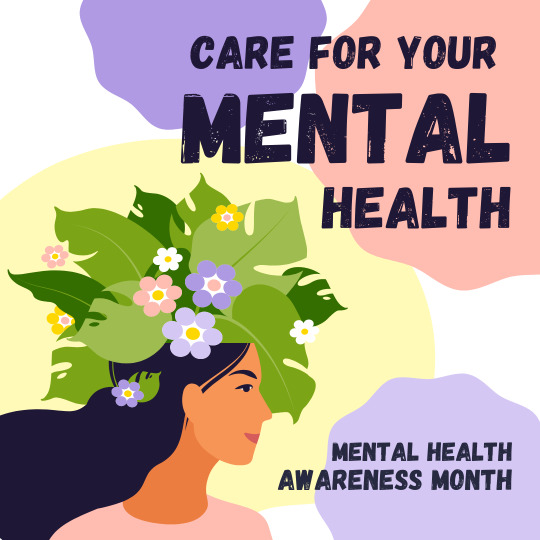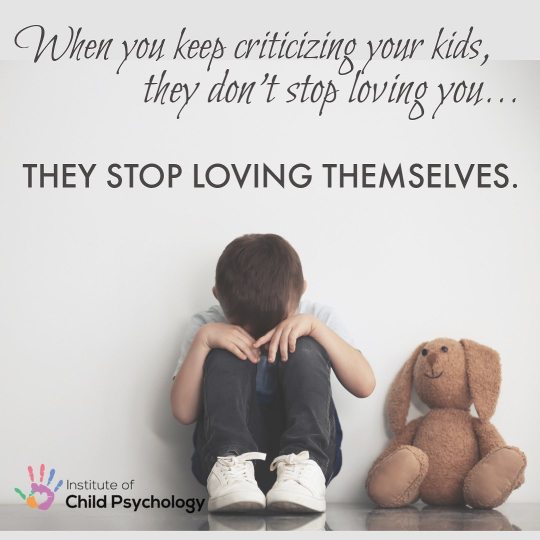#psychological health
Text
Note to Self
If someone treated you the way you treat yourself, you'd avoid them. You can't ever escape yourself though, no matter how much you may try, so why not learn to be a good friend to yourself instead?
#note to self#wisdom#mental health#positivity#emotional healing#psychological health#self respect#personal growth
61 notes
·
View notes
Text
The Impact of Psychological Health on Weight Loss Diet Success

تأثير الصحة النفسية على نجاح النظام الغذائي لإنقاص الوزن
وإليك نظرة عامة:
Understanding the Connection Between Psychological Health and Weight Loss
The Role of Stress and Emotional Well-being in Dieting Success
Overcoming Psychological Barriers to Sustainable Weight Loss
Mindful Eating and Its Impact on Psychological Health and Weight Loss
The Influence of Self-esteem and Body Image on Diet Success
The Power of Positive Thinking in Achieving Weight Loss Goals
Addressing Emotional Eating and Stress-induced Food Cravings
Coping Strategies for Dealing with Emotional Challenges During Weight Loss Journey
Seeking Professional Help: The Importance of Mental Health Support in Weight Management
Incorporating Mind-Body Practices for Holistic Wellness and Successful Weight Loss
Understanding the Connection Between Psychological Health and Weight Loss
I believe that psychological health plays a crucial role in the success of weight loss diets. Here are some key points to consider:
Emotional Eating: Emotional well-being can impact eating habits. Stress, anxiety, or depression can lead to emotional eating, where food is used as a coping mechanism.
Motivation and Discipline: A positive mindset and strong mental health are vital for staying motivated and disciplined throughout a weight loss journey.
Self-image: How we perceive ourselves can affect our weight loss efforts. Positive self-image is linked to better adherence to healthy habits.
Stress Management: Effective stress management techniques can prevent emotional eating and promote healthier choices.
Support System: Surrounding yourself with a supportive network can enhance psychological well-being and increase weight loss success.
Understanding and addressing the connection between psychological health and weight loss is essential for achieving sustainable results.
The Role of Stress and Emotional Well-being in Dieting Success
I believe that managing stress is crucial for successful weight loss. When we are stressed, our bodies release cortisol, a hormone that can lead to weight gain, especially around the midsection. Stress can also trigger emotional eating, causing us to reach for comfort foods high in sugar and fat.
To improve emotional well-being while dieting, I suggest practicing mindfulness techniques such as deep breathing, meditation, or yoga. These activities can help reduce stress levels and prevent emotional eating episodes. Additionally, seeking support from a counselor or therapist can be beneficial in addressing underlying emotional issues that may contribute to unhealthy eating habits.
Overall, taking care of our emotional health is just as important as monitoring our food intake when it comes to achieving successful weight loss.
Overcoming Psychological Barriers to Sustainable Weight Loss
I believe that addressing psychological barriers is crucial for achieving long-term success in weight loss. To overcome these barriers, I focus on the following strategies:
Identifying Triggers: I pinpoint situations or emotions that lead to unhealthy eating habits.
Building Resilience: I work on developing coping mechanisms to deal with stress or negative emotions without turning to food.
Setting Realistic Goals: I set achievable targets to prevent feelings of failure that may hinder progress.
Practicing Mindfulness: I cultivate mindfulness to foster better awareness of my eating behaviors and emotions.
By actively working on these aspects, I can overcome psychological barriers and maintain sustainable weight loss successfully.
Mindful Eating and Its Impact on Psychological Health and Weight Loss
I have found that practicing mindful eating can have a significant impact on both psychological health and weight loss. When I am more mindful of my eating habits, I tend to regulate my emotions better and reduce stress levels. This, in turn, helps me make healthier food choices and control my portions. By focusing on the present moment and being aware of my hunger cues, I can prevent overeating and mindless snacking.
Incorporating mindfulness into my eating routine has also improved my relationship with food and my body. I no longer view certain foods as "good" or "bad," and instead, I savor each bite and appreciate the nourishment it provides. This shift in mindset has led to a more sustainable approach to weight loss, as I am more likely to stick to a balanced and nutritious diet.
The Influence of Self-esteem and Body Image on Diet Success
I firmly believe that self-esteem and body image play a significant role in the success of a weight loss diet. When individuals have high self-esteem and a positive body image, they are more likely to stick to their diet plan and make healthier choices. On the contrary, those with low self-esteem may struggle with motivation and may give in to unhealthy eating habits more easily. Improving self-esteem and body image through positive affirmations, self-care practices, and seeking support from loved ones can boost long-term diet success. It is crucial to address these psychological factors alongside dietary changes for sustainable weight loss.
The Power of Positive Thinking in Achieving Weight Loss Goals
I believe that adopting a positive mindset is crucial when it comes to achieving weight loss goals.
Positive thinking can help me stay motivated and focused on my journey to a healthier lifestyle.
Reminding myself of my progress and celebrating small victories can reinforce positive thinking.
Visualizing my end goal and believing in my ability to reach it can significantly impact my weight loss success.
Surrounding myself with supportive and encouraging people can also contribute to maintaining a positive outlook throughout my weight loss journey.
Addressing Emotional Eating and Stress-induced Food Cravings
I need to recognize triggers that lead to emotional eating and stress-induced food cravings. These triggers can include emotions like sadness, loneliness, or anxiety. By identifying these triggers, I can develop healthier coping mechanisms to deal with emotions instead of turning to food. Engaging in stress-reducing activities such as meditation, exercise, or deep breathing can be helpful in managing stress levels and reducing the urge to overeat. It's essential to build a support system to discuss emotions and stressors, preventing them from manifesting in unhealthy eating habits.
Coping Strategies for Dealing with Emotional Challenges During Weight Loss Journey
I have compiled some coping strategies that have helped me navigate emotional challenges during my weight loss journey:
Seek Support: Surround yourself with a supportive network of friends, family, or a therapist to lean on when times get tough.
Practice Self-Care: Take time for yourself by engaging in activities that bring you joy and relaxation, such as meditation, reading, or taking a bath.
Set Realistic Goals: Break down your weight loss goals into smaller, achievable targets to prevent feeling overwhelmed.
Mindful Eating: Practice being present while eating to better recognize hunger and fullness cues, helping you avoid emotional eating triggers.
Celebrate Non-Scale Victories: Recognize and celebrate accomplishments beyond just the number on the scale, such as increased energy levels or improved mood.
Remember, it's essential to prioritize your emotional well-being alongside your physical health throughout your weight loss journey.
Seeking Professional Help: The Importance of Mental Health Support in Weight Management
I believe that seeking professional help is crucial when it comes to weight management and achieving long-term success. Here are some reasons why mental health support plays a significant role in this process:
Personalized Guidance: Working with a mental health professional can provide personalized guidance tailored to your individual needs and challenges.
Behavioral Changes: Addressing underlying psychological issues can help in making sustainable behavioral changes that support weight loss efforts.
Emotional Support: Dealing with weight-related issues can be emotionally challenging, and having a professional to talk to can provide much-needed emotional support.
Identifying Triggers: Mental health professionals can assist in identifying emotional triggers that may lead to overeating or unhealthy food choices.
Incorporating mental health support into your weight management journey can make a significant difference in your overall success.
Incorporating Mind-Body Practices for Holistic Wellness and Successful Weight Loss
I believe that integrating mind-body practices into your weight loss journey can lead to holistic wellness and improved success. Here are some effective strategies to consider:
Mindful Eating: Paying attention to hunger cues and savoring each bite can help prevent overeating and promote healthier food choices.
Yoga and Meditation: These practices can reduce stress levels, improve self-awareness, and enhance mindfulness, leading to better decision-making around food.
Breathing Exercises: Deep breathing can calm the mind, reduce stress, and improve focus, which can support adherence to a weight loss plan.
Positive Affirmations: Using affirmations can boost self-esteem and motivation, helping you stay committed to your weight loss goals.
By incorporating these mind-body practices, you can foster a healthy mindset and overall well-being while achieving successful weight loss.
#weight loss journey#dieting#diet#low cal diet#Wright loss#Psychological health#health & fitness#health tips
4 notes
·
View notes
Text
Neurospicy Relief Music
I've seen a lot of these ADHD and Anxiety Relief/Focus songs pop up on my YouTube landing page for a while.
This is the one that's scientifically designed to provide relief: Weightless by Marconi Union.
With me, it nearly triggered a panic attack. That was a fun three minutes of "Why is my heart rate spiking? Why am I starting to hyperventilate?" Not saying it doesn't work; just saying it didn't work for me. I don't like discordant harmonies. Didn't like them when I was a musician. They make me uncomfortable in a way I'm lack the vocabulary to describe. I can picture what they do to my body and brain but not write it out.
This song and some of the music on this play list, however, has a more positive effect: "Binaural Beats Focus Music For ADHD Relief, background study music" It's worth noting that not all of these work for me either - once people start using a lot of layered and ultimately discordant music we have the same problem that Weightless caused.
Disappointed by that but I gave it a try.
So if you think music will help, go on and check those out. The research done to design Weightless is pretty neat too.
#mental health#psychological health#emotional health#bfrb#trichotillomania#anxiety#adhd#neurodiversity#neurodivergent#neurospicy
2 notes
·
View notes
Text
How to Admit When You’re Lonely
How to Admit When You’re Lonely
While it’s hard to admit you’re lonely, doing so can help you connect with others.
By Cathy Cassata
Medically reviewed by Joslyn Jelinek, LCSW
Feeling lonely can make you feel unlikeable or weird, or like someone others just don’t want to be around. It can be difficult to admit when we’re lonely, even to ourselves. When someone asks how we’re doing, we often tell them “we’re fine.”
Admitting we…

View On WordPress
#BeStrong#iCanBeStrong#anxiety#Be Strong#depression#disconnected#emotional health#loneliness#lonely#lonesome#memory loss#mental health#overwhelm#psychological health#relationship#social#social health#well-being#wellness
2 notes
·
View notes
Text
I haven’t been posting online because honestly things have been going well for me. And I’m immensely grateful for that. But the past few days have been absolutely absurd.
Last month my mother booked plane tickets for me and my husband to come visit her and my brother to celebrate the holidays. The night before our flight departed I received a text that we had been delayed. I called her to let her know what was going on and to update her of our itinerary. In this conversation she discovered that my husband and I were not traveling with checked bags. (For context, she lives in a ski town) she had previously thought we were bringing our ski equipment, but my husband and I decided against it because it would have been an inconvenience for us, we were only going to be in town for a few days and hauling our gear didn’t seem worth it. After finding out we didn’t have our ski gear she began yelling at me over the phone. Just blowing up about how stupid we must be and why would she fly us out if we weren’t planning on skiing. (My husband and I care about just spending time around my family regardless if on snow or not).
I communicated with her that I did not want to be yelled at, patronized, talked down to etc. She continued to grow more agitated and lashing out saying some pretty terrible things. Becoming so nasty i feel comfortable calling it verbal and emotional abuse. She’s projecting onto me, thinking she can do no wrong and I’m the cause of all this. All I want to communicate is I don’t want to be treated poorly (and I admit I fired my own shots) she cannot comprehend my perspective, she feels I have disrespected and betrayed her bc I didn’t bring my skis. It’s so silly to me. I try and tell her how I’m feeling and share my position, she tries to turn me against my husband, she tells me I don’t know what I’m feeling, she gaslights me, she attempts to manipulate me, etc. It’s terrible, It’s been going on for hours, I’m in tears by the time my husband and I actually arrive at our destination. Not to mention we also had a layover and had to take a bus bc she abandoned us at the airport.
This morning she comes over to the family condo unannounced and I’m like I can’t just act like everything is fine. You’ve been so terrible to me and I don’t deserve that. I tell her everything again, I read out oud the messages she’s sent over the past 24 hours. She’s unable to take responsibility. She cant barely give a genuine apology. And I’m the one she blames, I am so hurt, so heartbroken. I see her now, perhaps I have been dealing with this for longer than I remember, it’s unfair, I’m angry. She genuinely believes that I’m at fault. That’s I’m selfish, that I aim to hurt her. All because I prefer to travel light. That I don’t care where we are but I just care about being with my family. And I’ve tried to communicate this, but she has put her pride above her family. She has prioritized feeling angry about over our decision instead of being grateful we’re just here.
I’m terribly sorry, I am sick. Unfortunately my brother has been dealing with this for a few years, we are with him now. I wanted a nice vacation, and instead I’m turned into a monster bc I didn’t want to inconvenience myself. She could have communicated that we should bring our skis. And things would have been different
I believe she is emotionally immature. If you have read to the bottom I thank you. I feel I can no longer continue, but I may rant more later. If you are able to offer any support or advice I would appreciate it. We’ll see how things continue to develop over the weekend…
#parental abuse#emotionally immature parents#immature parents#depression#mental health#anxitey#emotional abuse#psychological abuse#psychological health#psychological warfare#psychological trauma#psychological stress#projecting#gaslightingawareness#female manipulator#manipulation#gaslightingisabuse#gaslighting#is this gaslighting?
5 notes
·
View notes
Photo


May is Mental Health Awareness Month!
1️⃣ Make sure to read the 4 self-care tips!
2️⃣ Read our blog post where we spotlighted a webinar hosted by the International Civil Society Centre and peace activist Martina Nicolls. The webinar addresses the tools and resources that human rights defenders can utilize to take care of their own wellbeing ➡️ https://bit.ly/38GqYJS.
3️⃣ Learn from 3 organizations on how you can support people living with mental health conditions.
➡️ American Foundation for Suicide Prevention (AFSP)
➡️ National Asian American Pacific Islander Mental Health Association (NAAPIMHA)
➡️ National Queer and Trans Therapists of Color Network (NQTTCN)
#mental health awareness month#mham#mhm 2022#may is mental health awareness month#mental health awareness#mental health#mental health 2022#health#psychological health#wellbeing#together for mental health#together 4 mh#in this together#mental health matters#mind matters#self care#self care matters#self care may#break the stigma#end the stigma of mental health#mental health advocate#hrcblog
10 notes
·
View notes
Text
Dysfunctional Social Identity & Its Impact on Society
Dysfunctional Social Identity & Its Impact on Society
Us Versus Them
‘Us versus them’ is a common stance some people take in our society. The ‘us’ is a group of people with a social identity that is demonizing another group of people. Often, this us/them conflict is a tool used by cult-like groups to bond members of their social identity and increase loyalty and group-think behavior. Promoting an enemy to hate increases the power of the group…

View On WordPress
#co-dependency#dysfunctional social identity#Mental Health#psychological health#self awareness#self esteem#social identity
4 notes
·
View notes
Text
How to Deal with Anxiety Through Affordable Therapy: Your Path to Improved Mental Health

Anxiety is a natural human response to stress or uncertain situations, but for some, it becomes a persistent and overwhelming challenge. It goes beyond the typical worries we all experience and can manifest in various forms, impacting daily life. Individuals with anxiety disorders may face difficulties in managing emotions, navigating social situations, and even pursuing educational or professional opportunities. The physical and emotional toll of anxiety underscores the importance of seeking support and effective coping mechanisms to enhance mental well-being. Everyone experiences occasional worries and has to deal with anxiety in response to life's challenges. However, for those who deal with anxiety disorders, persistent and escalating anxiety can significantly impact daily life. Beyond the emotional toll, anxiety disorders can hinder educational and job opportunities, as well as strain social and familial relationships. Seeking help from mental health professionals is crucial for managing anxiety effectively.
Similar to the fight, flight, or freeze response, anxiety is a natural survival mechanism. While high levels of anxiety occasionally occur, chronic anxiety is a warning sign that needs attention. Anxiety can also be rooted in unresolved trauma, triggering heightened physiological reactions. The interplay of biology and environment determines an individual's experience of anxiety, with a potential genetic component.
Anxiety manifests differently in individuals, with some becoming withdrawn and others exhibiting a fight response. Common physical symptoms include stumbling over words, shaking, and nervous tics. Understanding the nuances of anxiety is essential for effective recovery, as there is no one-size-fits-all solution.
Various anxiety disorders, such as Social Anxiety Disorder (SAD), Panic Disorder, Generalized Anxiety Disorder (GAD), Obsessive-Compulsive Disorder (OCD), Post-Traumatic Stress Disorder (PTSD), and Phobias, necessitate tailored therapeutic approaches. Unfortunately, individuals with anxiety often resort to avoidance as a coping mechanism, amplifying their fears. Modern therapeutic methods focus on addressing avoidance and negative thinking to empower individuals to manage anxiety effectively.
Therapists in India specializing in anxiety employ diverse therapeutic methods, including Cognitive Behavioral Therapy (CBT), psychotherapy, or a combination of approaches. CBT, with a strong evidence base, targets negative thought patterns contributing to anxiety symptoms. It empowers individuals to modify cognitive habits through exercises that transform negative beliefs into positive ones. Efficient collaboration with anxiety therapists involves openness, asking questions, and active involvement between sessions. Counselling emphasizes creating a secure environment to prevent retraumatization during anxiety therapy. Acknowledging that anxiety and depression often stem from underlying issues, therapists prioritize providing a judgment-free space for clients to express their feelings.
For optimal results, individuals seeking anxiety therapy are encouraged to:
Be honest about your feelings
Ask questions and seek clarification
Share all relevant information with your therapist
Implement therapeutic strategies between sessions
Prioritize your mental health goals
Make healthy lifestyle choices
Cultivate a supportive social network
Address and reduce sources of stress contributing to anxiety
Self-management, including relaxation techniques, an active lifestyle, and effective time management, forms the first step in anxiety resolution. The three main components of anxiety treatment are psychological counselling, medication, and dietary changes. Each individual's treatment plan depends on the specific anxiety disorder and any underlying conditions.
Anxiety problems often go unnoticed, but anxiety therapy offers a beneficial solution. Seeking timely diagnosis and treatment not only improves productivity, relationships, and overall quality of life but also contributes to better general well-being. Discover the potential for a healthier and happier life through a combination of therapy and medication for anxiety, and you’ll see the change you have hoped for.
0 notes
Photo










(via "Hamster T-Shirts" iPad Case & Skin for Sale by zxcve)
#findyourthing#redbubble#love#home & lifestyle#student life#relationship#friendship#anxiety#psychological health#feeling#life quotes#Post on Tumblr#lit
0 notes
Text

Your voice will become their own; be mindful of the tone and words you use - they will have to live with them for the rest of their lives.
1 note
·
View note
Note
Hello Sir,
I’ve been reading your blog for some time now - it’s encouraged me to explore not only actually trying some of my fantasies (albeit alone), but why I may have those. I’ve actually sent you a message that you responded to about my panty pulling chair, and going slowly. Your response made me emotional - there was nothing wrong with what I had done, and in fact was helping others by sharing.
Now a days on the internet it seems everyone is feeling ‘gifted kid burnout’ or that by being praised for easily doing well and following the rules when we were younger, we now feel as if we are terrible at everything that is not easy, that we are fundamentally flawed. I’ve struggled with a deep fear of failure that has followed me throughout my life. Being allowed to be ‘naughty’ is such a fantasy, in both senses of the word. Something I long for, yet also something that seems impossible. I think the allure of all kink to me is the idea that you can be punished for something, whether it’s a big or small thing, real or imaginary, serious or lighthearted - and then still be loved afterwards. That being naughty is not synonymous with being Bad (I capitalize it because it seems like the worst thing in the world to me - to be Bad at something, to be a Bad person). Your stories never have Bad people - just girls who make mistakes, who have flaws. And they’re always forgiven for that at the end. It’s what keeps me coming back.
I’m sorry for the long message - and my anonymity. I wish I had the courage to message without it, but for now this is it. Thank you for your stories, your posts, your encouragement. For never making me feel Bad.
Thank you for sending such a courageously vulnerable message. I think many readers will empathise with every word of it, and it's likely to be thought-provoking to many others.
One of the missions of this blog (and our associated Discord community) has been to help others understand it's absolutely fine, and indeed psychologically healthy, to have a fascination with 'naughtiness'.
And you're quite correct to link ‘gifted kid burnout’ to an erotic interest in punishment. So many of us grew up under such great pressure to conform, to pass life's tests, and succeed. It's natural we should eroticise this anxiety. We seek the permission to be imperfect from someone who truly loves us.
Some (like me) were drawn to the role of rule-maker, whilst others will have a preference for being held accountable. A good Top appreciates failure is an essential aspect of living, there can be no room for improvement without it. A good Top knows Failure is never a Bad thing. That we are all flawed. And we only ever spank the bottoms of those that we love.
I find it wonderful that our minds have the magical power to transmute something as distressing as the fear of failure into deeply satisfying erotic fantasies. Far better the exciting thrill of naughtiness than the churning dread of feeling you don’t belong, or you’re not good enough.
So, to everyone who reads this who is still confused by their attraction towards strictness and punishment, I want to reassure you. Never feel like you are broken, your mind is working just as it should, to protect and encourage you.
Your mind is giving you permission to not just be imperfect, but to enjoy it too.
29 notes
·
View notes
Text
Dealing with Eating Disorders: Anorexia and the Importance of Balanced Nutrition

Dealing with Eating Disorders: Anorexia and the Importance of Balanced Nutrition
Here's an overview:
Introduction to Eating DisordersSigns and Symptoms
Emotional Impact
Seeking Professional Help
Importance of Balanced Nutrition
Understanding AnorexiaSigns and symptoms of anorexia include:
Treatment for anorexia often involves a combination of:
Causes and Risk Factors of Anorexia
Signs and Symptoms of Anorexia
Diagnosis of Anorexia
Treatment Options for Anorexia
Cognitive Behavioral Therapy for Anorexia
Family-Based Treatment (FBT) for Anorexia
Medication and Nutritional Therapy for Anorexia
Supporting a Loved One with Anorexia
Conclusion and Recovery from Anorexia
Introduction to Eating Disorders
Eating disorders are complex mental health conditions that can have serious physical consequences. As someone who has struggled with anorexia, I understand the challenges and the importance of raising awareness about these issues. When it comes to eating disorders, it's crucial to remember that they are not just about food or weight; they often stem from deeper emotional and psychological struggles.
Signs and Symptoms
Restricting Food Intake: This can involve skipping meals, limiting caloric intake, or avoiding certain food groups.
Preoccupation with Weight and Body Image: Constantly checking weight, body measurements, or appearance in the mirror.
Physical Changes: Rapid weight loss, fatigue, dizziness, hair loss, and irregular menstruation in females.
Social Withdrawal: Avoiding social gatherings that involve food or making excuses to avoid meals.
Emotional Impact
Living with an eating disorder can be isolating and overwhelming. It's common to experience feelings of shame, guilt, and worthlessness. I found that seeking support from loved ones, therapists, or support groups was instrumental in my recovery journey. Remember, you are not alone, and it's okay to ask for help.
Seeking Professional Help
If you suspect you or someone you know is struggling with an eating disorder, it's essential to seek help from a healthcare provider. A comprehensive treatment plan may include therapy, nutritional counseling, and medical monitoring. Remember, recovery is possible with the right support and resources.
Importance of Balanced Nutrition
Nutrition plays a crucial role in recovery from anorexia. Working with a dietitian to create a balanced meal plan can help restore physical health and promote mental well-being. It's vital to nourish your body with a variety of nutrients and food groups to support healing and recovery.
As we delve deeper into understanding anorexia and its effects, it's essential to approach these topics with empathy, education, and a commitment to breaking the stigma surrounding eating disorders.
Understanding Anorexia
I have struggled with anorexia in the past, and I know firsthand how challenging it can be. Anorexia is not just about wanting to be thin; it is a serious mental health disorder that can have severe consequences if left untreated. People with anorexia often have an intense fear of gaining weight, distorted body image, and a relentless pursuit of thinness.
Signs and symptoms of anorexia include:
Significant weight loss: An individual may have a body weight that is significantly below a healthy range for their age and height.
Restrictive eating habits: Constantly monitoring food intake, avoiding certain foods, and restricting calories.
Intense fear of gaining weight: Obsessively weighing themselves and expressing intense anxiety about weight gain.
Distorted body image: Seeing themselves as overweight even when underweight.
Physical symptoms: Fatigue, dizziness, fainting, and hair loss.
If you suspect that you or someone you know may have anorexia, it is crucial to seek help from a healthcare professional. Anorexia can have serious health consequences, including organ damage, osteoporosis, and in severe cases, it can be life-threatening.
Treatment for anorexia often involves a combination of:
Nutritional therapy: Working with a registered dietitian to create a meal plan that ensures adequate nutrition.
Therapy: Cognitive-behavioral therapy (CBT) or other forms of psychotherapy can help address underlying issues and change harmful thought patterns.
Medical monitoring: Regular check-ups with healthcare providers to monitor physical health and address any complications.
Remember, recovery from anorexia is possible with the right support and treatment. It's essential to reach out for help and not try to battle this disorder alone.
Causes and Risk Factors of Anorexia
I. Causes of Anorexia:
Genetics: Some studies suggest that genetics play a role in the development of anorexia. If someone in your family has struggled with an eating disorder, you may be at a higher risk of developing it as well.
Psychological Factors: Anorexia is often linked to underlying psychological issues such as low self-esteem, perfectionism, and anxiety. These factors can contribute to a negative body image and a preoccupation with food and weight.
Societal Pressures: Living in a culture that idealizes thinness can also influence the development of anorexia. Media images promoting unrealistic body standards can contribute to feelings of inadequacy and drive individuals to extreme dieting behaviors.
II. Risk Factors of Anorexia:
Gender: Anorexia is more common in females, but it can also affect males. The pressure to conform to societal standards of beauty and thinness can impact individuals of any gender.
Age: Anorexia commonly begins during adolescence or young adulthood, but it can develop at any age.
Co-occurring Mental Health Issues: Individuals with other mental health conditions such as anxiety disorders, depression, or obsessive-compulsive disorder may be at a higher risk of developing anorexia.
History of Dieting: Previous experiences with dieting or weight loss efforts can increase the likelihood of developing disordered eating behaviors.
Traumatic Events: Trauma, such as childhood abuse or bullying, can also contribute to the development of anorexia as a coping mechanism.
Understanding the causes and risk factors of anorexia is essential in addressing and supporting individuals struggling with this eating disorder. By recognizing these factors, we can provide appropriate interventions and promote a healthier relationship with food and body image.
Signs and Symptoms of Anorexia
I have listed below some common signs and symptoms of anorexia that you should be aware of:
Severely restricted eating: I may notice that I am drastically limiting my food intake, often to the point of starvation, or only consuming tiny portions.
Intense fear of gaining weight: I might exhibit an overwhelming fear of gaining weight or becoming fat, even if I am underweight.
Distorted body image: I may perceive myself as overweight, despite being underweight.
Preoccupation with food, calories, and dieting: I may constantly think about food, counting calories, and researching diet plans.
Excessive exercise: I might engage in relentless and extreme exercise routines, regardless of fatigue or injury.
Physical symptoms: I may experience physical manifestations such as fatigue, dizziness, brittle nails, hair loss, and feeling cold all the time.
Social withdrawal: I might withdraw from social activities that involve food or gatherings where my eating habits may be scrutinized.
Secrecy around eating: I may start hiding or lying about the food I eat and avoiding meals with others to conceal my restrictive eating habits.
If you notice any of these signs or symptoms in yourself or a loved one, it is crucial to seek professional help and support as early intervention is key in treating anorexia effectively.
Diagnosis of Anorexia
I diagnose anorexia by conducting a thorough assessment that includes a physical exam, a review of medical history, and a discussion of eating habits and attitudes towards food. Here's how I go about diagnosing anorexia:
Physical Examination: I begin with a physical examination to check for any physical signs of anorexia, such as low body weight, fatigue, and brittle hair and nails.
Medical History Review: I take a detailed medical history to understand any underlying medical conditions or family history of eating disorders.
Discussion of Eating Habits: I have a conversation with the individual about their eating habits, including their relationship with food, any restrictive behaviors, and perceptions of body image. This helps me understand their mental and emotional state regarding food.
Assessment of Psychological Symptoms: I assess for psychological symptoms such as anxiety, depression, obsessive-compulsive tendencies, and distorted body image, as these are often present in individuals with anorexia.
Diagnostic Criteria: I also refer to the Diagnostic and Statistical Manual of Mental Disorders (DSM-5) criteria for anorexia nervosa, which includes criteria related to restriction of food intake, intense fear of gaining weight, and a disturbance in the way one's body weight or shape is experienced.
Overall, the diagnosis of anorexia is a complex process that involves a comprehensive assessment of physical, psychological, and behavioral factors. It is crucial to approach the diagnosis with sensitivity and empathy to provide the individual with the necessary support and treatment.
Treatment Options for Anorexia
When it comes to treating anorexia, it's essential to have a comprehensive approach that addresses both the physical and psychological aspects of this eating disorder. Here are the main treatment options available:
Medical Intervention:
I may require medical monitoring to address any physical complications that have arisen due to anorexia, such as malnutrition, electrolyte imbalances, or heart problems. It's crucial to work closely with healthcare providers to stabilize my health.
Nutritional Counseling:
Working with a registered dietitian can help me develop a balanced meal plan that meets my nutritional needs and supports my recovery. Learning how to nourish my body properly is a crucial step in overcoming anorexia.
Therapy:
Therapy plays a vital role in treating anorexia, especially since it's often linked to underlying emotional issues. Cognitive-behavioral therapy (CBT), family therapy, or other forms of psychotherapy can help me understand the factors contributing to my eating disorder and develop healthier coping mechanisms.
Support Groups:
Joining a support group for individuals struggling with eating disorders can provide me with a sense of community and understanding. Sharing experiences and receiving encouragement from others going through similar challenges can be incredibly beneficial.
Medication:
In some cases, doctors may prescribe medications to manage symptoms such as depression, anxiety, or obsessive-compulsive behaviors that often co-occur with anorexia. These medications should be used in combination with therapy and other treatments.
Remember, the road to recovery from anorexia can be challenging, but with the right treatment and support, it is possible to develop a healthier relationship with food and body image.
Cognitive Behavioral Therapy for Anorexia
I believe that Cognitive Behavioral Therapy (CBT) is a crucial component in the treatment of anorexia. Here are some reasons why I find CBT to be effective:
Identifying Negative Thought Patterns: In CBT, I can work with a therapist to identify and challenge negative thought patterns related to body image, self-worth, and food. This process helps me understand how these thoughts contribute to my behaviors.
Developing Coping Strategies: Through CBT, I learn effective coping strategies to deal with triggers that may lead to disordered eating behaviors. I can develop healthier ways to manage stress, anxiety, or low self-esteem without resorting to restrictive eating habits.
Changing Destructive Behaviors: CBT helps me replace harmful behaviors with positive ones. By addressing the underlying issues driving my anorexia, I can make sustainable changes towards a healthier relationship with food and my body.
Improving Self-Esteem: CBT can assist me in improving my self-esteem and body image perceptions. I can work on developing a more positive self-image based on realistic and healthy beliefs.
Building Relapse Prevention Skills: With CBT, I can acquire tools to recognize early warning signs of relapse and implement strategies to prevent a recurrence of anorexic behaviors. This proactive approach equips me with the skills needed to maintain recovery in the long term.
In conclusion, Cognitive Behavioral Therapy plays a vital role in addressing the psychological aspects of anorexia and promoting lasting recovery by changing negative thought patterns, developing coping strategies, and enhancing self-esteem.
Family-Based Treatment (FBT) for Anorexia
I have found that Family-Based Treatment (FBT) is a highly effective approach when dealing with anorexia. In FBT, the family plays a crucial role in the treatment process. Here are some key points about FBT:
Involvement of Family: FBT recognizes the impact of family dynamics on an individual with anorexia. It involves the entire family in the treatment process, focusing on empowering parents to take charge of refeeding their child.
Empowering Parents: The primary goal of FBT is to empower parents to become agents of change in their child's recovery. As a therapist, I work closely with parents to help them support their child in restoring a healthy relationship with food.
Phases of Treatment: FBT is typically divided into three phases. The first phase focuses on weight restoration, the second on returning control of eating back to the adolescent, and the third on promoting healthy adolescent development.
Non-Blaming Approach: FBT is non-blaming and aims to reduce feelings of guilt or shame within the family. It helps parents understand that anorexia is not anyone's fault but rather a serious mental health condition that requires treatment.
Evidence-Based: FBT is supported by research as an effective treatment for adolescent anorexia. Studies have shown that FBT leads to higher rates of full remission compared to individual therapy.
I have seen firsthand the positive impact that FBT can have on individuals struggling with anorexia. By involving the family in the treatment process and empowering parents to take an active role, FBT can help adolescents make significant strides towards recovery and long-term health.
Medication and Nutritional Therapy for Anorexia
I have found that medication can be a useful tool in the treatment of anorexia. In some cases, antidepressants may be prescribed to help manage symptoms such as anxiety and depression that often accompany anorexia. These medications can assist in improving mood and overall mental well-being, which can be crucial in the recovery process. It is essential to work closely with a healthcare provider to find the right medication and dosage that will be most effective for each individual.
Nutritional therapy is another key aspect of treating anorexia. Working with a registered dietitian who specializes in eating disorders can be incredibly beneficial. They can help create a meal plan that focuses on restoring a healthy relationship with food, ensuring that essential nutrients are being consumed, and supporting weight restoration in a safe and sustainable way.
Medication, particularly antidepressants, can help manage symptoms like anxiety and depression in anorexia.
Collaboration with a healthcare provider is crucial to finding the most effective medication and dosage.
A registered dietitian specializing in eating disorders can assist with creating a balanced meal plan.
The meal plan will focus on restoring a healthy relationship with food and supporting weight restoration.
As part of a comprehensive treatment plan, medication and nutritional therapy can play vital roles in addressing both the physical and emotional aspects of anorexia. It is important to remember that recovery is a journey, and finding the right combination of treatments may take time. Working closely with a team of healthcare providers including therapists, doctors, and dietitians can help ensure the best possible outcomes in the treatment of anorexia.
Supporting a Loved One with Anorexia
I have witnessed firsthand the challenges of supporting a loved one struggling with anorexia. Here are some ways to offer support:
Educate Yourself: Learn about anorexia to understand what your loved one is going through. Knowing the facts can help you provide better support.
Encourage Professional Help: Encourage your loved one to seek professional help from doctors, therapists, and nutritionists specialized in eating disorders.
Provide Emotional Support: Be there for your loved one, listen without judgment, and offer emotional support. Anorexia can be emotionally draining, so providing a safe space for them to express their feelings is crucial.
Promote a Positive Body Image: Avoid making comments about weight or appearance. Instead, focus on positive qualities unrelated to physical appearance.
Encourage Balanced Nutrition: Encourage your loved one to eat balanced meals and snacks. Offer to cook together or plan meals that are nutritious and appealing.
Avoid Power Struggles: It's essential to approach food and eating habits with empathy and understanding. Avoid power struggles or making them feel guilty about their eating habits.
Set Boundaries: While offering support, it's also important to set boundaries to protect your own well-being. Seek support for yourself through therapy or support groups.
Remember, supporting a loved one with anorexia can be challenging, but with patience, understanding, and professional guidance, you can help them on their journey to recovery.
Conclusion and Recovery from Anorexia
I have learned that recovery from anorexia is a complex and challenging journey that requires patience, commitment, and professional help. Here are some key points to consider during the recovery process:
Seek Professional Support: It is crucial to work with a team of healthcare providers, including doctors, therapists, and dietitians, who specialize in eating disorders. They can provide the necessary guidance and support to help you recover.
Establish Healthy Eating Habits: Creating a meal plan that focuses on balanced nutrition is essential for recovery. It is important to nourish your body with a variety of foods to support physical and mental well-being.
Challenge Negative Thoughts: Anorexia often involves distorted beliefs about body image and food. Cognitive-behavioral therapy can help challenge these negative thoughts and develop a healthier mindset.
Build a Support System: Surrounding yourself with supportive friends and family members can make a significant difference in your recovery journey. Opening up about your struggles and seeking help when needed is a sign of strength.
Practice Self-Care: Engaging in activities that promote self-care, such as mindfulness, yoga, or journaling, can help manage stress and improve overall well-being during recovery.
Monitor Progress: Keep track of your progress by setting achievable goals and celebrating small victories along the way. Remember that recovery is a gradual process, and setbacks may occur.
Remember, recovery from anorexia is possible with the right support and dedication. Taking care of your physical and emotional health is vital in overcoming this eating disorder. You are not alone in this journey, and seeking help is the first step towards a healthier and happier life.
#diet#dieting#psychological health#health & fitness#Anorexia#Eating disorders#disturbance#nutrition tips#nutrition and health#health
3 notes
·
View notes
Text
We have a diagnostic answer!
Drum roll please:
Clinical Anxiety
A part of me wants to say "well no shit", but also it's an answer. It does, pending further eval by a psychiatrist, explain most if not all as to "why my brain do". This is different from regular anxiety but don't ask me why, I'm not entirely sure I understand.
It also explains the trichotillomania (BFRB/BFRD).
So woohoo. My ADHD evaluator is going to help me figure out some in-network psychiatrists and I'll coordinate with my primary therapist on some of the long-term treatment suggestions.
The short version as I do understand it though is this: Anxiety at any intensity is going to have behavioural expressions that are also seen in ADHD and AuDHD. The big differences are that we don't have the risk-taking behaviour and even if stimulants can help, we don't have to have them in the same on-going way.
So huzzah, we got the beginnings of answers.
#mental health#psychological health#trichotillomania#emotional health#neurodiversity#self-care#bfrb#anxiety#clinical anxiety
0 notes
Text
Title: The Power of Positivity: Cultivating Optimism in Times of Stress

Life is full of ups and downs, and it's during the challenging moments that our ability to stay positive and optimistic truly shines. When faced with stress and difficult situations, maintaining a positive mindset can make all the difference. In this blog, we will explore the art of being optimistic during trying times and delve into the fascinating impact it has on our brain's neurons.
Optimism is a mindset that allows us to see the silver linings, find solutions, and maintain hope even in the face of adversity. But how does this positive outlook affect our brain's neurons?
When we consciously choose to focus on the positive aspects of a situation, we activate the brain's reward system. This system releases neurotransmitters like dopamine, which promote feelings of pleasure and motivation. By engaging this region, we strengthen the neural connections associated with resilience and emotional well-being.
Moreover, optimism involves reframing challenges as opportunities for growth. Instead of viewing difficult situations as insurmountable obstacles, we can shift our perspective and see them as valuable lessons. This shift in mindset activates the prefrontal cortex, the part of the brain responsible for rational thinking and decision-making. As we engage this region, we strengthen the neural connections associated with problem-solving and cognitive flexibility.
Practicing optimism also involves cultivating gratitude and appreciation for the present moment. When we focus on the things we are grateful for, we activate the brain's hippocampus, which is responsible for memory formation and emotional regulation. This activation enhances our ability to find joy in small moments and strengthens the neural pathways associated with positive emotions.
Furthermore, optimism encourages us to adopt a growth mindset, believing that our abilities and intelligence can be developed through effort and perseverance. This mindset activates the brain's dorsolateral prefrontal cortex, which is involved in self-regulation and goal-setting. By engaging this region, we strengthen the neural connections associated with resilience, motivation, and achievement.
In conclusion, cultivating optimism and positivity during stressful and difficult situations can have a profound impact on our brain's neurons. By focusing on the positive, reframing challenges as opportunities, and cultivating gratitude, we strengthen the neural connections associated with emotional well-being, problem-solving, and resilience. So, let us embrace the power of positivity and nurture our ability to navigate life's challenges with optimism and grace.
#self impowerment#self importance#self improvement#mental health#self identity#stress#self introspection#self care#resilience#self confidence#psychological health#pyscological growth
1 note
·
View note
Text
Addiction can often become a significant hurdle. Individuals grappling with underlying mental health issues may resort to drugs or alcohol as a form of self-medication, unwittingly exacerbating their challenges. However, the cessation of substance use often brings forth a surge of physical and psychological symptoms. The pivotal first step toward a successful recovery is detoxification.
0 notes